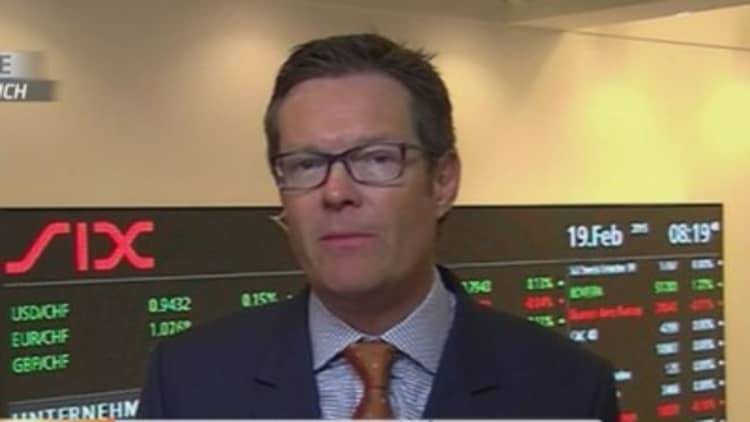
Nestle, the world's largest packaged foods maker, forecast sales to rise 5 percent this year, in line with its long-term goals, following a weaker year in 2014 that was hurt by deflation in Europe and slowing demand in Asia.
The Switzerland-based maker of Nescafe coffee and KitKat chocolate said on Thursday that 2014 organic sales, which excludes currency swings and acquisitions, rose 4.5 percent. Analysts on average had expected 4.5 percent, a Reuters poll found, after Nestle signaled in October it was likely to fall short of its 5 percent goal.
Nestle's 2015 goal includes improvements in margins and underlying earnings per share in constant currencies. The company also proposed to increase its dividend to 2.20 Swiss francs per share.
"We expect 2015 to be similar to 2014," Nestle Chief Executive Paul Bulcke said in a statement.
On a reported basis, 2014 sales were down 0.6 percent to 91.6 billion Swiss francs ($97.37 billion), pulled down by negative foreign exchange.
Net profit rose 4.4 billion francs to 14.5 billion francs in 2014, helped by price increases, cost-savings and the profit realized on the disposal of part of Nestle's stake in L'Oreal .
The size and breadth of Nestle's portfolio, which also includes bottled water, pet food and prepared food, allows it to deliver consistent results during most storms, but even it is being hurt by increased competition, especially from healthier foods, economic weakness and deflation.
Full-year organic sales rose 5.4 percent in the Americas, 1.9 percent in Europe and 5.7 percent in Asia, Oceania and Africa.
The global consumer goods sector has toned down its growth expectations as once-hot economies like China and Brazil have slowed, and cost-conscious shoppers in Europe and North America remain cautious.
Still, Nestle's stock currently trades at roughly 22 times earnings, on par with the sector average, as yield-starved investors have turned to consumer staples for their reliable dividends.
Nestle's shares sank more than 6 percent last month when the Swiss National Bank abandoned its cap on the franc, sending it surging. The shares have since made up some of the losses.
Faced with slowing growth, Nestle has begun to reshape its portfolio, focusing on faster-growing, higher-margin products that appeal to changing consumer tastes. It sold the bulk of its Jenny Craig diet business and bought into the market for skincare products.

